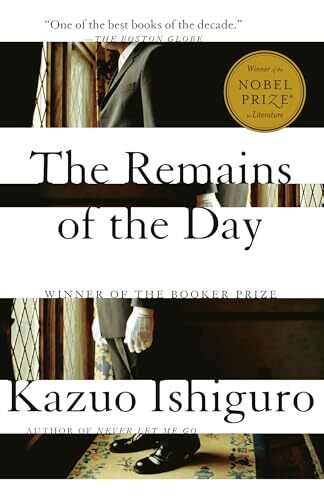
I put off reading this book for weeks, because the subject matter seemed fairly boring. How wrong I was. This book is extraordinary, though it’s hard to put into words why!
-
The writing is superb. You get the sense that you are directly speaking to an English butler. It captures the vocabulary, mood, and attitude perfectly.
-
I had honestly never really though about the life a butler or other house servant would lead. It requires amazing devotion to duties and a huge amount of hard work. But for what? What are you really accomplishing?
-
The argument in the book is that the role of great butlers is to serve great gentlemen so those gentlemen can do great things to assist all of humanity. But as a butler, you have no control over what the gentleman that you serve does and in many cases, they are not great, and accomplish nothing of importance.
-
This makes you ponder the whole nature of work and how you should spend your time on earth. But then you take a step back and consider the time period of this book and wonder what alternative people had.
-
The book has a remarkable way of forcing you to think through these sorts of questions. And yet the book doesn’t tackle many of them explicitly; instead, the butler in the story is very reserved, and withholds his honest opinion on many of these topics. In fact, this very restraint and self-denial are a key theme of the story. He seems to deny himself pleasure, love, relaxation, and all the joys of life. He rarely speaks his true thoughts or acts on his true emotions, preferring to be passive-aggressive or subtle innuendo. He holds back everything, restrains everything, leaves so much unsaid and so much undone… and you, as the reader, as a result, are almost forced to scream it out for him! Tell her you love her! Go see your father! Be happy! It’s beautiful how much tension and emotion this book can create, despite, on the surface, being so quiet and “dignified.”
-
In the book, the butler explains that the main characteristic of a great butler is “dignity.” He doesn’t define it precisely, but this sort of restraint—this ability to act like the ideal butler in any circumstance, whether someone is dying or there is a lion in the room—seems to be a key aspect of it. It’s being a butler through and through and never breaking form. It is, quite frankly, inhuman. He also talks about how attentiveness and the “illusion of absence” are other key characteristics for a great butler. I can accept the former, but the latter, again, feels profoundly inhuman.
-
The butler’s discussions of “banter” are hilarious. Despite all the dignity and acting proper and mature, Stevens sounds like an immature child when discussing so many topics. “Such are the dangers of uttering witticisms.”
A fantastic read I’d recommend to anyone.
